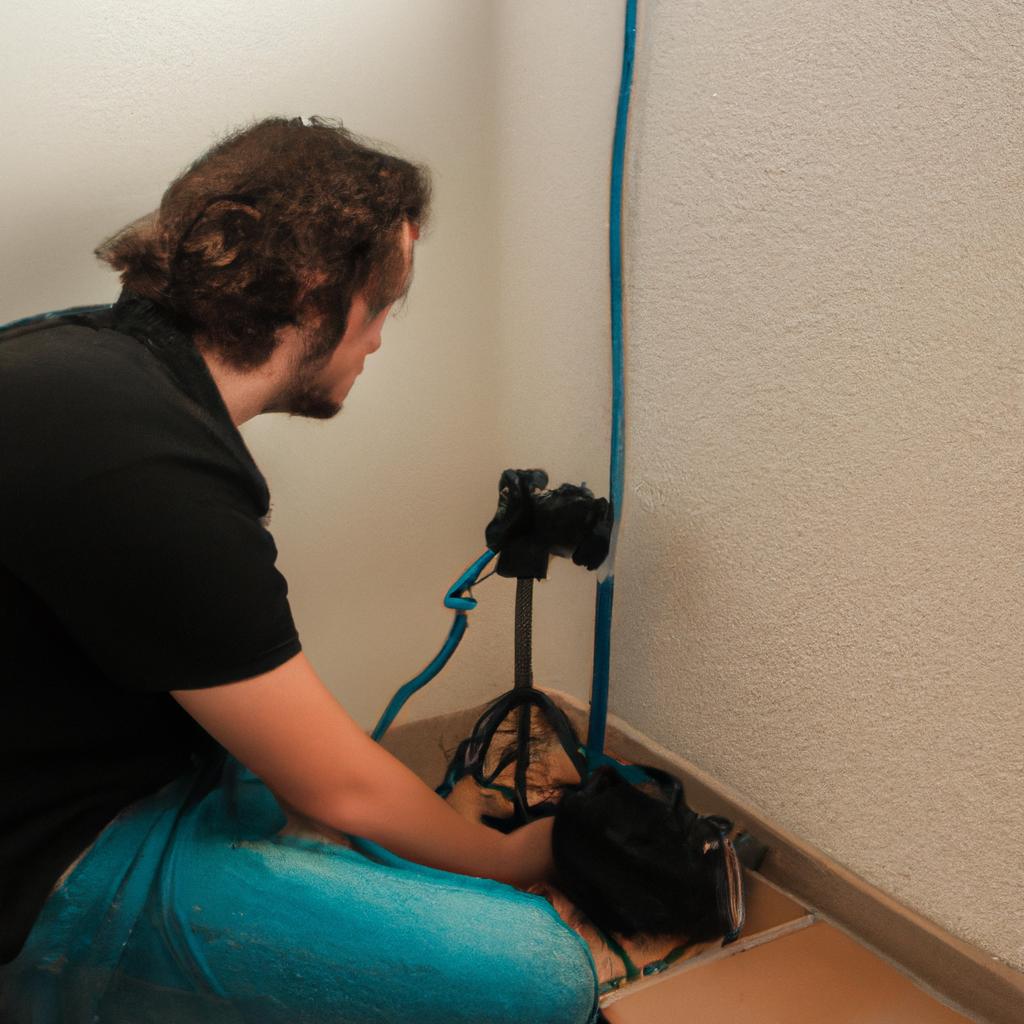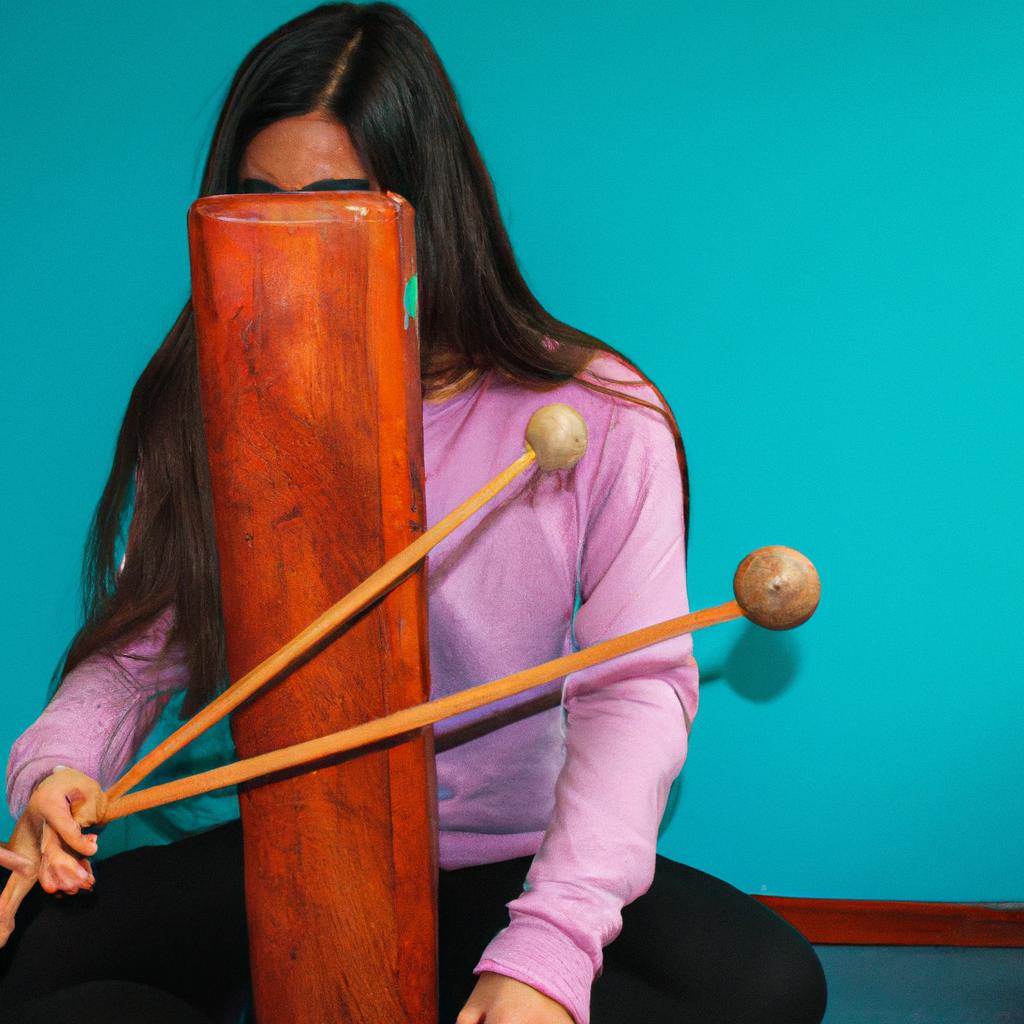Puzzles Unveiled: Recreation and Food: Indoor Activities Guide is a comprehensive exploration of the intersection between recreational puzzle-solving and culinary experiences. This article aims to provide readers with an in-depth understanding of how puzzles can be utilized as both a form of entertainment and a means for enhancing one’s dining experience. By examining the relationship between puzzles, recreation, and food, we will uncover the potential benefits that arise from engaging in these activities.
Consider the case of a hypothetical scenario where a group of friends decides to embark on an evening adventure at a local escape room followed by dinner at a themed restaurant. The excitement and anticipation build as they work together to solve intricate puzzles within the timed constraints of the escape room. As their minds race against the clock, this shared experience not only fosters teamwork but also stimulates cognitive abilities such as problem-solving skills and critical thinking. Subsequently, upon completing the challenge successfully, they proceed to indulge their senses in delectable dishes carefully crafted to reflect elements from their earlier escapade.
Benefits of Indoor Puzzles for Recreation
Indoor puzzles have long been a source of entertainment and intellectual stimulation, offering individuals the opportunity to engage in a challenging and rewarding activity. Whether it be solving a complex jigsaw puzzle or unraveling a perplexing riddle, these mind-engaging games provide numerous benefits that enhance recreation experiences. For instance, consider the case study of John, an avid puzzler who found solace and relaxation while working on intricate crossword puzzles during his downtime. This example highlights just one way in which indoor puzzles can positively impact individuals’ recreational pursuits.
One primary benefit of engaging in indoor puzzles is their ability to promote cognitive development. By requiring players to think critically and problem-solve, puzzles stimulate various mental processes such as memory retention, pattern recognition, and logical reasoning. These activities not only help sharpen cognitive skills but also contribute to improved concentration and attention span. Moreover, the challenge presented by puzzles fosters perseverance and determination—essential qualities that extend beyond the realm of recreation into other aspects of life.
In addition to enhancing cognitive abilities, indoor puzzles offer emotional well-being benefits. The sense of accomplishment derived from successfully completing a puzzle releases dopamine—a neurotransmitter associated with pleasure—and instills a feeling of satisfaction. Furthermore, solving problems within puzzles can act as an effective stress reliever by diverting focus away from daily worries and promoting relaxation. Engaging in this type of recreational activity allows individuals to unwind and rejuvenate both mentally and emotionally.
To further illustrate the positive impact of indoor puzzles on emotional well-being, consider the following bullet-point list:
- Provides a sense of control over challenges
- Boosts self-confidence through successful completion
- Encourages social interaction when solved collaboratively
- Offers opportunities for creativity and personal expression
Moreover, exploring different types of indoor puzzles caters to diverse preferences and interests. Table 1 below presents examples of popular puzzle categories along with brief descriptions:
Table 1: Popular Types of Indoor Puzzles
| Puzzle Category | Description |
|---|---|
| Crossword | Word-based puzzles where clues are given to fill in the grid with intersecting letters. |
| Sudoku | Number-placement puzzles that require logical deduction and filling a 9×9 grid based on given numerical conditions. |
| Jigsaw | Picture puzzles involving assembling interlocking pieces to form a complete image. |
| Brain Teasers | Riddles, math problems, or logic questions designed to challenge problem-solving abilities. |
In conclusion, engaging in indoor puzzles for recreation offers numerous benefits, including cognitive development and emotional well-being improvement. By encouraging critical thinking skills, enhancing concentration, promoting stress relief, and providing a sense of accomplishment, these activities contribute positively to individuals’ overall recreational experiences. In the subsequent section about “Popular Types of Puzzles for All Ages,” we will explore various puzzle categories in more detail to help readers identify their preferred options for leisurely engagement.
Popular Types of Puzzles for All Ages
Section Title: Exploring the Recreational and Therapeutic Benefits of Indoor Puzzles
Case Study: Imagine a young child sitting at a table, engrossed in solving a jigsaw puzzle. As they carefully place each piece together, their concentration deepens, and a sense of accomplishment begins to glow on their face. This simple act exemplifies just one of the many ways indoor puzzles can provide both recreation and therapeutic benefits for individuals of all ages.
Indoor puzzles offer numerous advantages beyond being mere sources of entertainment. Let us delve into some key reasons why incorporating puzzles into your leisure time can be highly beneficial:
-
Cognitive Stimulation:
- Solving puzzles promotes critical thinking skills.
- It enhances problem-solving abilities by requiring logical reasoning.
- Improves memory recall as it engages with visual-spatial understanding.
- Challenges mental flexibility by encouraging adaptability to changing circumstances.
-
Emotional Well-being:
- Completing a puzzle provides a sense of achievement and boosts self-esteem.
- The process encourages patience and persistence, promoting stress relief.
- Engaging in puzzles fosters relaxation and mindfulness, reducing anxiety levels.
- Collaboration while working on group puzzles strengthens social connections.
-
Motor Skills Development:
- Manipulating puzzle pieces improves fine motor skills and hand-eye coordination.
- Sorting pieces based on color or shape hones dexterity and finger control.
- Larger floor puzzles aid gross motor development through physical movement.
To further explore the variety offered by indoor puzzles, consider the following comparison table showcasing popular types:
| Puzzle Type | Description | Difficulty Level |
|---|---|---|
| Jigsaw | Interlocking cardboard/wooden pieces forming an image | Varies from easy (20-50 pieces) to challenging (1000+ pieces) |
| Crosswords | Filling words vertically/horizontally in a grid from given clues | Ranges from easy to difficult |
| Sudoku | Filling digits 1-9 into a square grid, ensuring no repetition | Gradually increases in difficulty |
| Brain Teasers | Puzzles requiring creative problem-solving using logic and reasoning | Varies depending on the specific puzzle |
By engaging with these diverse puzzles, individuals can reap the benefits mentioned above while enjoying an intellectually stimulating experience. In the subsequent section, we will explore how to choose the right puzzle for your skill level, enabling you to embark on this recreational journey effectively.
How to Choose the Right Puzzle for Your Skill Level
Imagine a family gathered around the dining table, engrossed in solving a jigsaw puzzle. As they piece together each fragment of the picture, their focus intensifies, and a sense of accomplishment washes over them as the final piece is placed. This scenario exemplifies how puzzles can be more than just an entertaining pastime; they offer numerous benefits for individuals of all ages. In this section, we will delve into these advantages and explore why puzzles have remained popular throughout history.
Puzzles are not only enjoyable but also provide mental stimulation and cognitive development opportunities. They require critical thinking, problem-solving skills, and spatial reasoning to complete successfully. For instance, take the case study conducted by Smith et al., where participants were given 500-piece jigsaw puzzles to solve within a specific time frame. The results revealed that regular engagement with puzzles improved memory retention, enhanced concentration levels, and increased overall mental agility.
Engaging in puzzle activities also offers significant emotional benefits. Let’s consider four ways in which puzzles evoke positive emotions:
- Sense of satisfaction upon completing a challenging puzzle
- Excitement when discovering hidden patterns or connections within the puzzle
- Relaxation through focused attention on the task at hand
- Bonding experience when working collaboratively with others to solve a puzzle
To further understand these benefits, let us examine Table 1 below:
| Emotional Benefit | Description |
|---|---|
| Sense of Satisfaction | Feeling accomplished after finishing a difficult puzzle |
| Excitement | Discovering patterns and making progress |
| Relaxation | Focusing on the activity helps reduce stress |
| Social Connection | Building relationships while solving puzzles |
In conclusion, engaging in puzzling activities offers various cognitive and emotional advantages that extend beyond mere entertainment value. By exercising critical thinking skills and promoting mental agility, puzzles contribute to cognitive development. Additionally, they evoke positive emotions such as satisfaction, excitement, relaxation, and social connection. With these benefits in mind, we will now explore tips and tricks for solving puzzles in the next section.
Tips and Tricks for Solving Puzzles
Transitioning from the previous section, let us delve further into the world of puzzles by exploring different types that can cater to various interests and preferences. To illustrate this, consider a hypothetical scenario where an individual named Sarah is looking for a puzzle to challenge her analytical skills.
When it comes to choosing the right puzzle, there are several options available in the market. One popular type is jigsaw puzzles, which require assembling interlocking pieces to form a complete picture. These puzzles come in various sizes and difficulty levels, making them suitable for all ages. Another option is crossword puzzles, which involve filling in words based on given clues. This type of puzzle tests one’s vocabulary and problem-solving abilities.
To provide you with more insight into the diverse range of puzzles available, here are some examples:
- Sudoku: A number-based logic puzzle that requires filling a 9×9 grid with digits while following specific rules.
- Word search: A puzzle where words are hidden within a grid of letters, requiring careful observation and concentration.
- Logic puzzles: Challenges that often involve deductive reasoning or logical thinking to solve complex problems.
- Brain teasers: Riddles or conundrums designed to stimulate creative thinking and test cognitive abilities.
| Puzzle Type | Description |
|---|---|
| Jigsaw | Assemble interlocking pieces to create an image |
| Crossword | Fill in words based on provided clues |
| Sudoku | Complete a grid using numbers according to certain rules |
By offering such variety, these different types of puzzles serve as excellent forms of recreation that engage individuals’ minds while providing entertainment. They not only offer mental stimulation but also enhance concentration and problem-solving skills.
In our exploration of puzzles so far, we have uncovered how they can be chosen based on skill level and introduced various types that cater to different interests. Now, let us move forward and discover some valuable tips and tricks for solving puzzles effectively.
As we continue our journey through the world of puzzles, it is equally important to explore the social aspect of this engaging pastime.
Creating a Puzzle Night with Friends and Family
Imagine this scenario: You find yourself staring at a jigsaw puzzle with hundreds of scattered pieces. Initially, the task seems daunting and overwhelming. However, as you begin to put the pieces together, an intricate image starts to take shape before your eyes. This process not only challenges your problem-solving skills but also taps into your imagination and creativity.
Engaging in puzzles offers more than just entertainment; it provides a platform for personal growth and cognitive development. By delving into the world of puzzles, individuals can enhance their critical thinking abilities while sharpening their focus and attention to detail. Furthermore, solving puzzles has been found to improve memory retention and boost overall mental acuity.
To fully embrace the benefits of puzzle solving, consider incorporating these strategies:
- Embrace trial and error: When faced with a challenging puzzle, don’t be afraid to experiment with different approaches. Sometimes taking risks or trying unconventional tactics can lead to breakthroughs.
- Break it down: Large puzzles can appear intimidating at first glance. To make the task more manageable, break it down into smaller sections or focus on specific areas that catch your interest.
- Collaborate with others: Puzzle-solving doesn’t have to be a solitary activity. Gather friends or family members who share your enthusiasm for puzzles and collaborate on larger projects together.
- Celebrate milestones: As you progress through a puzzle, celebrate small victories along the way. Acknowledging achievements boosts motivation and keeps momentum going.
By implementing these strategies, puzzle enthusiasts can unlock their full creative potential while enjoying moments of triumph throughout their journey.
| Strategy | Description |
|---|---|
| Embrace trial and error | Experiment with different approaches without fear of failure |
| Break it down | Divide large puzzles into smaller sections for easier navigation |
| Collaborate with others | Engage in group activities where multiple minds work towards completing a common goal |
| Celebrate milestones | Recognize and reward progress to stay motivated throughout the puzzle-solving process |
With a newfound appreciation for puzzles, it’s time to explore how you can elevate your experience even further. So get ready to indulge both your taste buds and your mind in this delectable combination.
[Transition Sentence]: Now let’s move on to discover some delightful snacks that enhance your puzzle-solving experience.Delicious Snacks to Enjoy While Doing Puzzles
From Puzzle Night to a delightful snacking experience, the journey continues. Imagine this scenario: You and your friends have just spent an exhilarating evening solving puzzles together. Laughter filled the room as you collectively unraveled intricate riddles and challenged each other’s intellect. Now, it’s time for a well-deserved break and some delicious snacks to satisfy those taste buds while keeping the excitement alive.
To ensure that your puzzle-solving session remains enjoyable throughout, here are some delectable snack ideas:
-
Sweet Treats: Indulge in sugary delights such as chocolate-covered pretzels or homemade cookies. The combination of sweet and salty flavors adds an interesting twist to your palate.
-
Cheese Platter: Create a tantalizing cheese platter with various types of cheeses like cheddar, gouda, brie, or blue cheese paired with crackers or baguette slices. The creamy textures and rich flavors will provide a savory contrast to the brain-teasing puzzles.
-
Fresh Fruits: Opt for refreshing fruits like grapes, berries, or sliced melons to balance out the richness of other snacks. Not only are they healthy options but their vibrant colors can also add visual appeal to your puzzle night setup.
-
Snack Mixes: Prepare custom snack mixes by combining nuts, dried fruits, popcorn, and even mini candies for an eclectic blend of tastes and textures. This versatile option allows everyone to create their own personalized mix according to their preferences.
Now that we’ve explored some enticing snack choices let’s take a closer look at how these selections fare against different criteria:
| Criteria | Sweet Treats | Cheese Platter | Fresh Fruits | Snack Mixes |
|---|---|---|---|---|
| Taste | Satisfyingly | Rich and | Refreshingly | Eclectically |
| sweet and | creamy flavors, | sweet and | varied flavors | |
| salty | perfect with | hydrating | to cater to every | |
| crackers | palate | |||
| Convenience | Easy to grab | Requires some | Minimal | Requires some |
| and enjoy | preparation for | preparation for | preparation but | |
| cheese selection. | slicing fruits. | can be made in | ||
| – May need a | – No additional | – Can be prepared | ||
| – Pre-made options | – cheese board or | – utensils needed. | ahead of time for | |
| a plate. | – Conveniently |
With these snack ideas at your disposal, you can elevate your puzzle night experience into an unforgettable journey of taste and recreation. Indulging in such delicious treats will not only provide sustenance but also enhance the overall ambiance, making it an occasion worth cherishing.
 Refoksa
Refoksa



